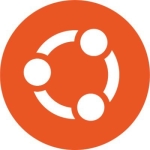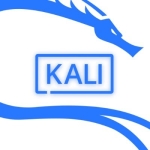My use cases with Oracle Linux recently include the government of Goiás state in the Secretary of Economy, a GM concessionary of vehicles named Jorlan in Goiás, and Alnutri Alimentos, a rice and chili factory. Additionally, I have worked with the Ministry of Exterior of Brazil and many others.
In my opinion, the best features of Oracle Linux are its strong stability for running databases, particularly Oracle databases, and its use of DNF for package management. I believe DNF is a strong and modern way to manage Linux packages, more effective than yum and Zypper. Moreover, the memory usage and management in Oracle Linux are very robust, and the kernel is well-adapted for database users, making it one of the best options for running databases like MySQL and MariaDB as well.
I do not understand the licensing for Oracle Linux.
My first use of Oracle Linux began in 2013, marking the start of my experience with this operating system.
I find Oracle's support to be deficient in response time; it is often low, and the call options for small price forms are difficult. However, the knowledge base is very good and fair, and I believe the main feature of Oracle support, formerly known as Metalink, is an extremely useful resource.
I would rate the support as a six or seven, concluding that my score is about seven.
Currently, my company is not an Oracle customer, although it was a partner before 2010 and was involved in third-party colocation in Brazilian sales markets in 2006. After 2010, my company and I have utilized other databases too. While we still use Oracle for consulting on Oracle Linux and its databases, the market primarily uses other databases, shifting our Linux support from SUSE to Oracle Linux.
Regarding Matillion data in ETL, I do not have experience with materialized views.
I have experience with other products besides Snowflake, including AWS RDS in the on-premise world, an OCI Oracle database, SQL Server in an on-premises environment, SQL in Azure, Big Data from GCP, and a bit of experience with Databricks and Oracle HeatWave too.
I have experience with Oracle database versions from six to 24 AI.
Oracle Linux is the Oracle operating system, specifically Oracle Enterprise Linux.
I have experience with Oracle Linux from the sixth version to the eighth version, with a small experience using the ninth version as well.
My use of Oracle Linux does not include Ksplice for zero downtime updates; I am unclear on that feature.
Regarding SE Linux security, many customers disable this feature; however, in some use cases within the Secretary of Economy and the Ministry of Exterior Commerce of Brazil, this feature is enabled. Although I don't have extensive experience with this feature, I find that SE Linux offers impressive security strength within the Linux environment, and it also restricts inappropriate access for databases.
Oracle Linux has good integration and usability with Red Hat Linux because it is based on Red Hat. Moreover, it is normally compatible with SUSE and other Linux distributions and supports standard communication protocols like SSH. Additionally, it maintains compatibility with Windows servers.
In my opinion, I don't currently see potential improvements for Oracle Linux because I believe its features are sufficient for database environments and more, particularly in the Red stack. Overall, I believe Oracle Linux is good as it is.
In my opinion, the price for Oracle Linux is fair and acceptable for companies in the market that utilize it.
My overall score for Oracle Linux as a product is ten.




















